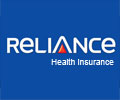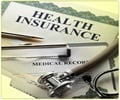Additional Healthcare Concerns
a) Medical Emergencies
In cases of medical emergency, the first thing to be remembered by any individual is to dial the telephone number "911". This telephone number is an emergency telephone number wherein a customer or patient can dial or make a call from anywhere in the USA requesting for immediate and skilled medical attention by qualified personnel including quality healthcare services. While it is wise to carry other important numbers pertaining to medical assistance viz. an individual’s personal doctor or family physician, hospital, nursing home, rehabilitation centre, insurance company, medical laboratory, poison control center etc., in a genuine emergency, it is imperative to dial 911 first for quick medical assistance. Under such circumstances, time is the most crucial factor in preventing damage or even loss of human life.
The telephone operator handling an individual’s "911" call will immediately dispense the necessary help as required, both in terms of sending an ambulance and in routing an individual’s call to a counselor who will guide him/her through the crisis situation until the ambulance arrives for transferring the patient to hospital.
Emergency medicine across U.S.A. is of high quality standards. Ambulance attendants, or paramedical staff are extensively trained in dealing with trauma including Road Traffic Accident cases and making split-second decisions that save the precious human lives. Many hospitals are equipped with Trauma Centers or Casualty wherein emergency medical situations including emergency (or unplanned) surgeries are handled with precision and ease. In cases of medical emergency, the concerned individual will be administered treatment immediately based on his/her presenting symptoms and thereafter, will be transferred or taken to the hospital that can best handle such a situation, viz. trauma center, burn treatment center, a cardiac treatment center, a children's (paediatric) hospital or a general hospital. In case if the patient is conscious or if there is a family member or friend accompanying that patient, he/she will be asked for the name of the family physician, who would be summoned to the hospital to discuss the details of the case including any significant past medical history details.
If you have any specific medical condition or ailment viz. diabetes, hypertension etc or allergies to medications, it is wise to reveal such information to the treating consultant or the hospital. Any pertinent information regarding the health status that can be supplied to the attending paramedics may save valuable time, minimize the treatment expenses and hence is of utmost importance. There are situations that demand immediate medical attention but which may not necessarily be emergencies include animal bites, wounds etc.
If an individual has young children, it is wise to have the number of a poison control center handy. Always call "911" in an emergency situation to deal with poison ingestion cases. Symptoms such as breathing difficulties, chest pains, dizziness or unconsciousness are experienced. However, even if a child has ingested a questionable substance but is not showing symptoms, it is always better to contact the nearest local poison control center. Such substances can include medications, disinfectants, pesticides, cleaning products etc. found around the home or plant matter that may be highly toxic. It is a good idea to have a bottle of syrup of Ipecac in an individual’s medicine cabinet, for dealing with such emergencies. This induces vomiting and as a parent necessary counseling may be given to administer this medicine to his/her child. It is advised that an individual should not administer Ipecac syrup, without the necessary guidance of a qualified medical professional.
It must be noted that even though the emergency care across U.S. is excellent, it is expensive at the same time. There will be a fee or service charge levied for various facilities viz. ambulance, Emergency room or Casualty, Recovery Room, any medications administered, the services of specialist or super-specialist physicians’ involved and any laboratory tests or special procedures involved. Such fee or service fee is not levied or intended for situations wherein a doctor needs to be consulted or a visit to a walk-in clinic.
An additional note about "911": This number is also used in medico-legal emergencies, and therefore is not just limited to medical situations. As a law-abiding citizen, whenever he/she is in serious danger at any point of time, witness an accident or a crime that is committed, one should not hesitate to call the aforesaid number for effectively tackling such situations.
b) Dental Care
Dental care is important and requires daily attention. Americans tend to take great pride in their teeth as well as dental hygiene. The quality of dental care is of high standards.
It must be remembered that prevention is the best cure. The American Dental Association (ADA) advocates annual check-ups and cleanings, daily flossing and brushing. Such measures go a long way in preventing cavities and associated dental problems such as gingivitis, a gum disease that can lead to tooth loss.
Not only does dental care include the prevention and curing health related ailments, it also can entail improving the patient's overall appearance. Through the speciality of Orthodontics that incorporates procedures such as capping, bonding and whitening, cosmetic dentistry has become increasingly common across USA. Such treatments can be expensive, since they mostly comprise of Aesthetic or cosmetic treatments. But if an individual has the finance, he can avail such treatments to have a "Hollywood smile."
Just like the medical professionals, the dentists must adhere to a strict process to be eligible to practice in USA. They must attend a prescribed course of study at an accredited dental college and be licensed by the dental medical board of the state in which they practice. General dentistry is performed by a DDS (doctor of dental science). He or she will examine your teeth and perform such procedures as removal of tartar deposits, filling cavities, extraction of tooth and performing various types of cosmetic dentistry. Typically, the dentist will employ a dental hygienist to assist him/her in various procedures and to clean the teeth. For more complex situations, a patient may then be referred to a dental specialist, such as an Endodontist, who performs root canal procedures, removal of abscess etc.
Many individuals fear visiting a dentist because certain dental procedures can be painful and unbearable in nature. The dental professional community is aware about this and steps are being taken to provide pain-free and virtually pain-free dentistry. This is due to rapid strides made in technological advancements. Even for some of the most basic dental procedures, the usage of local anaesthesia is essential, that cannot be avoided.
Payment
Only a few handful insurance companies provide insurance covers for dental treatments and procedures. The insurance companies that offer dental insurance coverage generally cover only dental ailments or diseases that warrant attention, but it does not provide coverage pertaining to cosmetic dentistry. There are certain dental procedures that may fall in between the aforesaid two categories such as orthodontics. In such cases, an individual’s dentist can be helpful in his/her dealings regarding claims settlement with the insurance company. Many dental procedures being quite highly priced, it is always recommended that incase, if an individual is uninsured, it is obviously wise to work out a payment plan with the dentist or join a dental discount program viz. Aetna Dental Access or purchase a dental insurance policy.
Finding a Dentist
The American Dental Association (ADA) website contains a list and description of the specialties regarding the dental professionals incorporating dentist referral service,based on location-wise for the entire country. There are various methods of finding or identifying a dentist in USA as follows:
- Word of Mouth
- Clinics
- Telephone Book
c) Vision Care
Most people, sooner or later, require eyeglasses of some kind. In general, vision problems can be classified into two broad categories viz. short sightedness (Myopia) and far sightedness (Hypermetropia). Typically, a person with shortsightedness wears eyeglasses regularly throughout his or her life. Farsightedness entails wearing glasses only for reading and other close up, detailed activities and tends to affect people 40 years and above in age.
Eye care in United States of America covers a broad-spectrum from basic to extremely specialized treatments. General eye care is administered by an Optometrist, who is trained and licensed to examine eyes and prescribe eyeglasses and contact lenses. An average individual who requires spectacles visits an optometrist who, upon examination, will prescribe glasses to rectify his or her vision problem. The optometrist will also test for some eye diseases viz. cataract, glaucoma and can identify if a more serious problem, is present. If that is the case, the patient will be referred to an Ophthalmologist, a medical doctor specializing in diseases of the eye and its treatment. An ophthalmologist can also examine eyes and prescribe lenses and if an individual experiences major problems with the vision or suspect a problem of some kind, it is always a good idea to visit an ophthalmologist. But for standard eye care, an optometrist provides quality attention. It must be noted that since ophthalmologists are medical doctors, their consultation fees are substantially higher in comparison to those of optometrists. Upon receiving the prescription for corrective lenses, it needs to be taken to an Optician for choosing the frame based on an individual’s taste including his/her face structure. After selection of the frame, the glasses or lenses are fitted as stated in the prescription.
Finding a Doctor
The umbrella organization for ophthalmologists across USA is the American Academy of Ophthalmology (AAO). Its website contains a referral list for ophthalmologists as well as substantial and useful information regarding the curative and preventive aspects regarding eye health and vision. The other sources for securing the referral of an ophthalmologist include the local hospital or nursing home in an individual’s vicinity, telephone directory and, of course through family, friends, and neighbours.
Selection of Glasses
Many times, eyeglasses are sold by optical businesses that employ both optometrists and optical professionals. The optical establishments provide the customers with a "one stop shopping situation." Examples include Lenscrafters large, eyewear optical chains across USA, large department store chains such as. J.C. Penney etc. In addition, there are small, local businesses that provide such services for the benefit of consumers. There are stores and boutiques across USA, that sell eye frames with optometrists providing eye-care services for the consumers. An individual may take his/her vision prescription to any of the aforesaid establishments for preparing the eyeglasses based on the frames selected by the concerned consumer. The price of eyeglasses depends largely on the selection of frames. It must be kept in mind that more trendy or fashionable the frame, the expenses incurred on eye frames will be higher. The prices for more complex lenses such as bifocals etc. can also result in higher costs for eye-care. Additional costs include anti-reflection coating, tinting, photo-chromatic glasses etc as desired by the customer. On many occasions, larger optical establishments offer discounts on the eye frames.
If simple reading glasses are required by an individual, it is not compulsory for him/her to carry a prescription. Certain supermarkets such as WalMart etc. maintain a stock non-prescription reading glasses. These are essentially magnifying glasses that are available in a variety of strengths and are not quite expensive. An individual can choose whether it would suit his/her requirements or not. If the customer is still not satisfied, he/she can consult an optometrist for an eye-examination.
Contact Lenses
If an individual decides to opt to wear contact lenses instead of the eyeglasses, he/she will be examined in the same manner as done for eyeglasses. In addition, the physical shape of your eye including cornea will be measured. Today, majority people prefer using disposable lenses either for daily or extended wear for varied reasons.
Typically a health insurance plan will cover the expenses incurred on eye care products and services as administered by an ophthalmologist for medically viable situations viz. diagnosis, dispensing of medicines or medicaments, surgery and professional services regarding eye care. Majority of health insurance covers do not reimburse costs pertaining to eye care if incurred by an optometrist or an optician such as purchase of eyeglasses or contact lenses, Cosmetic or Aesthetic eye treatments viz. Laser treatment for eyes etc. There are however a few health insurance plans that do provide insurance coverage, but that needs to be confirmed by the concerned consumer.
Driver Licenses
All vehicle licenses for the drivers issued across U.S.A. makes it mandatory for the concerned applicant to pass an eye examination-test, in order to be eligible for the license. If an individual is already wearing eyeglasses or contact lenses, he/she must compulsory wear them while driving in order to pass the driving test. Such a requirement, usually printed as "corrective lenses" will be identified on the concerned individual’s driving license.
d) Inoculations
Preventive medicine, Lifestyle Programs and Wellness Programs are being advocated by US citizens in a big fashion in order to deal with the health related aspects across United States of America. To maintain and preserve the good health of an individual, regular visits or follow-ups to family physicians is an essential or basic exercise for any individual. In order to prevent the occurrence of diseases, administration of inoculations plays an important role. In certain situations, inoculations may be required to be administered as per law to young children viz. Polio, Hepatitis B, Tetanus etc, according to a specified schedule.
Children
Under the law, it is mandatory across USA that all children must be administered with the necessary inoculation vaccines prior to attending school. These vaccines should be given at specific intervals based on a well-defined schedule as specified according to WHO (World Health Organization) regulations. Many state health departments offer such inoculation shots free or at minimal cost. For this purpose, the health departments can be contacted by telephone, fax or via email and their numbers are listed in the state government section of the phone book represented as blue pages for easy identification purposes.
Influenza vaccine
A worthwhile inoculation available at minimal cost is for influenza. This vaccine is good for any individual, but especially useful for elderly individuals or senior citizens, wherein health is compromised. Such vaccines can be availed from mobile clinics sponsored by various health organizations in USA as well as from an individual’s own family physician. If an individual truly values the safeguard of being inoculated against influenza, it is recommended to receive a new inoculation on a yearly basis. It must be noted that the types or strains of flu change from year to year and the sera contained in the vaccines are reformulated accordingly.
Accidents or exposure to disease
Occasionally, a mishap or an accident will dictate the need for an inoculation. An illustration to support this fact is the necessity to receive a tetanus booster vaccine after being injured with wound or after being cut or lacerated by a thing or substance that is rusted. Incase, if an individual is significantly exposed to a highly contagious disease or an epidemic, such as hepatitis an inoculation of gamma globulin vaccine may be required to be taken for preventive purposes. Vaccines of such type are typically administered by an individual’s family physician or can be availed at most OPDs (Outdoor patient Department) or walk-in clinics.
Animal bites
Most local or county governments require that all pets including - dogs and cats be vaccinated against rabies. Either wild animals or stray dogs or cats that come into contact with domesticated animals or pets and that have not been inoculated at regular intervals can be carriers of rabies which is a serious disease and if treated, can be fatal in nature. If an individual is not familiar with an animal that has bit him/her, it becomes absolutely imperative to contact Animal Services and a branch of the police or sheriff's department. The contact numbers are listed in the blue pages of the telephone directory. Upon informing such departments, the animal would be caught and subsequently tested for rabies. If the concerned departments are not successful in catching the animal or identifying it or incase, if the animal is infected, the individual must undergo a series of inoculation vaccine shots to prevent him/her from contracting the disease.
Hence, it must be borne in mind that prevention is better than cure. Hence, the concept of Prevention or Preventive Medicine is gaining importance amongst the US citizens.




![An Introduction - Indian General [Non-Life] Insurance Companies An Introduction - Indian General [Non-Life] Insurance Companies](https://www.medindia.net/images/common/patientinfo/120_100/health-insurance21.jpg)














Who is the author and editor of this article?